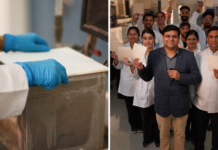In response to COVID 19 pandemic, the Food Safety & Standards Authority of India (FSSAI) is taking several steps to facilitate industry during the lockdown period. As the country moves further in its fight against COVID 19 and many restrictions are being eased across many areas, FSSAI is gearing to face emerging challenges.
FSSAI is engaged with State Food Safety Departments, communicating the emerging priorities in the food safety landscape. The priorities communicated include expediting work related to licensing on the online portal, establish licensing helpline in each state with a dedicated number and email id, create a robust complaint handling mechanism; conduct only essential inspections, among others. FSSAI has strongly emphasized the need for facilitating food business to the State food authorities.
FSSAI had issued detailed guidelines on food safety and hygiene for food businesses during the COVID 19 pandemic. The pdf of the same can be accessed here.
Realizing the need for training food handlers, FSSAI has commenced training for food handlers under its flagship Food Safety Training & Certification (FoSTaC) program.
Apart from training, there is a need to counter myths and misinformation. Several instances have been brought to the notice of the authority where products such as frozen food, food served cold or chilled were selectively not allowed to be transported, stored or sold, ostensibly on the notion that they could promote the spread of COVID-19. FSSAI has communicated to State’s or UT’s giving instructions to review any such restriction imposed in their State and rescind those not consistent with FSSAI guidance. States or UT’s have been instructed to follow a non-discriminatory approach while dealing with food businesses in the lockdown and even post lockdown period.
The communications to states can be accessed at link 1 and link 2.
IndiFoodBev — authentic, impactful and influential
An English-language food and beverage processing and packaging industry B2B platform in print and web, IndiFoodBev is in its third year of publication. It is said that the Indian food and beverage industries represent approximately US$ 900 billion in revenues which implies more than 20% of the country’s GDP. Eliminating the wastage on the farmside can help to deliver more protein to a higher number of the population apart from generating sizable exports. The savings in soil, seeds, water, fertilizer, energy and ultimately food and nutrition could be the most immense contribution that country is poised to make to the moderation of climate change.
To improve your marketing and grow sales to the food and beverage processing and packaging industry, talk to us. Our research and consulting company IppStar [www.ippstar.org] can assess your potential and addressable markets in light of the competition. We can discuss marketing, communication, and sales strategies for market entry and growth.
Suppliers and service providers with a strategy and budget for targeted marketing can discuss using our hybrid print, web, video, and social media channels to create brand recognition linked to market relevance. Our technical writers are ready to meet you and your customers for content.
The second largest producer of fruit and vegetables in the world is continuously expanding processing capacities and delivery systems with appropriate innovative technologies. We cover product and consumer trends, nutrition, processing, research, equipment and packaging from farm to thali. Get our 2025 media kit and recalibrate your role in this dynamic market. Enhance your visibility and relevance to existing markets and turn potential customers into conversations. Ask for a sample copy of our bi-monthly in print or our weekly IndiFoodBev eZine each Wednesday.
For editorial info@ippgroup.in — for advertisement ads1@ippgroup.in and for subscriptions subscription@ippgroup.in
Naresh Khanna – 10 February 2025
Subscribe Now











